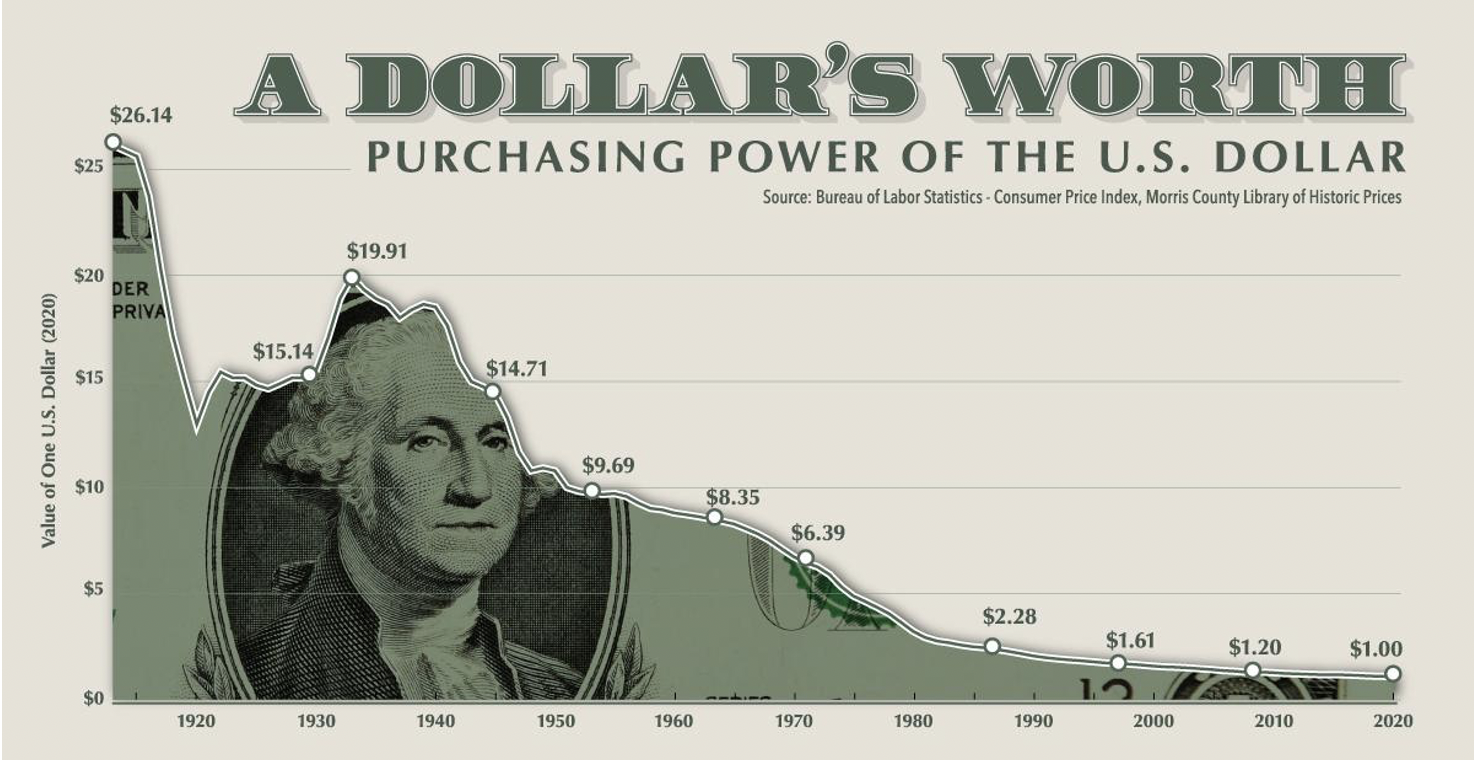Kerby Anderson
A month ago, I talked about the dollar’s loss of value. In the printed copy of my commentary, we provided a chart that showed the decline in the value of our money. This illustrated the US dollar is like a melting ice cube.
One illustration I have used is the cost of gold. When the Federal Reserve began in 1913, gold sold for $20 an ounce. By 2020, gold was selling for $2,000 an ounce (gold currently sells for less). This one-hundred times increase suggests that the dollar lost 99 percent of its value.
It is hard to get a mental picture of that since many Americans do not purchase gold coins. So here are some other items that demonstrate the declining purchase power of a dollar.
Back in 1913, one dollar would buy 30 Hershey’s chocolate bars. In 1933, President Franklin D. Roosevelt issued Executive Order 6102, which outlawed the hoarding of gold. At that time, one dollar could purchase 10 bottles of beer.
Near the end of World War II was the Bretton Woods agreement. The 44 nations created a foreign exchange system and created the International Monetary Fund and the World Bank. A dollar in 1944 would buy 20 bottles of Coca-Cola.
President Richard Nixon ended the gold standard in 1971. At that time, a dollar could buy 17 oranges. But by the time of the financial crisis of 2008, a dollar would only buy 2 lemons. Today, it is hard to find anything you can buy for a dollar, even in stores with the names like “The Dollar Tree” and “The Dollar Store.”
These examples are a reminder of the shrinking value of the dollar and the need for all of us to become better stewards of our financial resources.
 Listen Online
Listen Online Watch Online
Watch Online Find a Station in Your Area
Find a Station in Your Area









 Listen Now
Listen Now Watch Online
Watch Online
